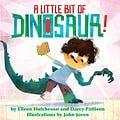UPDATE: As of 2024, this problem seems to be resolved.
Do you remember Y2K? When the century turned from 1900 to 2000, computer programs were in trouble. For many programs, the date had been programmed as 19__ and there was no easy way to re-program it to 20__ or just ____. The book industry is having its own version of a computer programming meltdown.
ISBN - International Standard Book Number
The ISBN is a unique identifying number assigned to a book title/format. That is, each format—hardcover, picture book, ebook, audiobook—needs its own identifying number. The number is tied to both the title and format.
About fifteen years ago, the 10-digit numbers that had been used since the inception of ISBNs was becoming too full. To alleviate this, the industry converted to 13-digit numbers, starting with 978. But they warned that when that series of numbers was used up, they’d move on to 979 and other series.
The problem? Amazon still uses the 10-digit number ISBN number. If you look up your book title for a paperback or ebook, the 10-digit number is encoded into the URL. Here’s the URL for my book, A LITTLE BIT OF DINOSAUR:
https://www.amazon.com/Little-Bit-Dinosaur-Elleen-Hutcheson/dp/1629441546/
That number at the end is the 10-digit ISBN for the paperback version.
The industry allowed conversion from 10- to 13- digit ISBNs as an interim measure to alleviate the stress of the transition. Here’s the Library of Congress converter. If you put in a 979 number, you’ll get an error code.
But it gets worse!
Apparently, Amazon uses the 10-digit code to ORDER the books!
If you publish a hardcover or paperback with Ingram’s POD service, then Amazon orders it with the 10-digit ISBN, not the 13-digit ISBN.
Even though they’ve known for 15 years that this day was coming, Amazon isn’t ready.
979 ISBN Numbers
If you have just purchased ISBN numbers, check to see if they begin with 978 or 979. If it’s 978, you’re fine.
If it’s 979, then you’re going to have problems selling books on Amazon, whether you use POD, FBA, or other methods.
For ebooks, Amazon has always assigned it’s own proprietary 10-digit ASIN number. For now, what they are apparently doing is taking a 979-ISBN and assigning it an 10-digit ASIN number. Then, they use THAT number in the URL.
Fine. It works for navigation purposes.
But it doesn’t work for ordering from Ingram, who is not only a huge POD company but also the US’s leading wholesaler. 979 books are listed as unavailable.
You can’t just convert the 979 number to a 10-digit number because it would duplicate a 978 number.
What To Do?
Start by registering a complaint with Amazon. We’ve seen that community action does get their attention.
Use 978 numbers if possible. If you have spare 978 ISBNs laying around (ha!) use those first.
If you rely on paperback or hardcover sales, as is typical for children’s publishing, you may want to delay your launch date and watch the situation. A 979 number is going to be unprofitable.
Or do a soft launch with just an ebook first because Amazon still knows how to deal with those. Or start selling from your website.
Otherwise, I don’t know. We don’t know how long it will take for this issue to be prioritized and solved by Amazon. Until it is, ebooks will be your most reliable format, which is bad news for children’s book authors!
Through it all, though, write! Because that’s what we do, we write children’s books. Eventually this ISBN-Y2K will be solved! They have to solve it because the 978s are running out.
EDIT 6/4/2023: Ingram/Amazon have created a work-around. The publisher must provide Ingram with the ASIN on the Amazon book page when the book goes up for sale. Ingram's system can then recognize the order from Amazon.




There is some indication that the 979 numbers will work with KDP publishing. It may be that it's JUST going from Ingram to Amazon. Ingram only gives 13-digit numbers because it can't convert to 10-digit without duplicating a 978-10-digit number. Several people are testing whether the 979 will work with KDP. Stay tuned and keep and ear out.
Hi Darcy, several of our clients have published their books with the 979 prefix, using both IngramSpark and KDP, and no issues at all so far. We've also used the 979 prefix to get an LCCN. Again, no issues with the Library of Congress. Perhaps there is a unique set of circumstances that are causing problems?